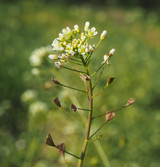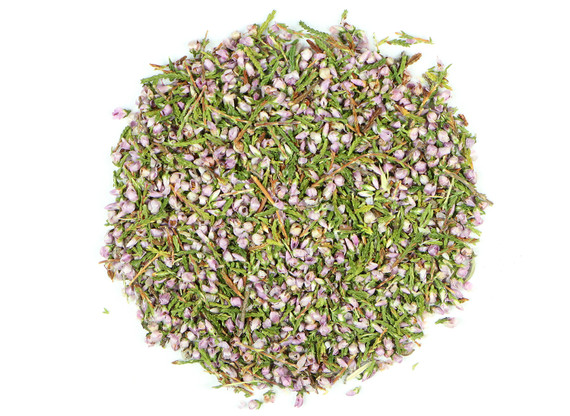Capsella bursa-pastoris is often recognized by its triangular, flat, purse-like fruits. Aptly named, shepherd’s purse is a small, herbaceous annual in the mustard family. Shepherds purse has been used for thousands of years with seeds even being found in a Neolithic settlement in Turkey. Native to eastern Europe and western Asia, shepherd’s purse is often considered a common weed in areas where it has naturalized. With a long history of use in folk herbalism for its beneficial properties, the herb can be macerated as a liquid extract or steeped as shepherd’s purse tea.
Shepherd's purse is a temperate zone weed in the mustard family, the same as cabbage, broccoli, and watercress. It is a biennial with an erect stem emerging from a rosette of leaves at its base. It bears four-petalled white flowers that produce heart or purse shaped seedpods. Its name comes from its resemblance to a shepherd's pouch in the middle ages. All of the above ground parts of the plant are used in herbal preparations.
Precautions
Not for use in pregnancy except under the supervision of a qualified healthcare practitioner. We recommend that you consult with a qualified healthcare practitioner before using herbal products, particularly if you are pregnant, nursing, or on any medications.
This information has not been evaluated by the Food and Drug Administration. This product is not intended to diagnose, treat, cure, or prevent any disease. For educational purposes only.












